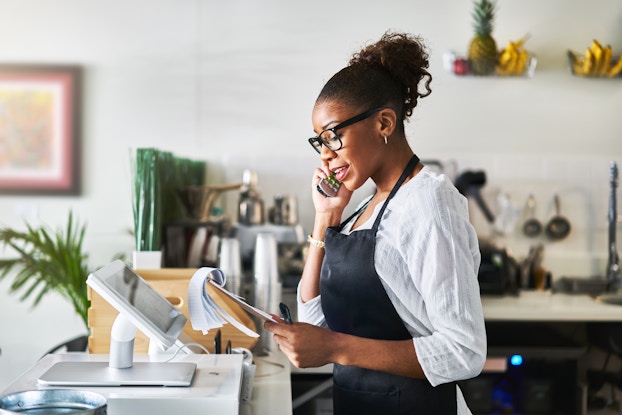
Coronavirus is having a major impact on small businesses across the nation, but some businesses are using the pandemic as an opportunity to help employees, other businesses and their communities.
Kitsbow
As demand for medical supplies grows, Kitsbow is a small business looking to answer the call. The company normally produces cycling supplies, like jerseys and baggies, but CEO David Billstrom says the organization is now making face masks and “face shields.” These masks can be used by consumers and medical professionals in the fight against coronavirus.
Federico’s pizza
The restaurant industry has been hit particularly hard by coronavirus, with roughly 75% of independent restaurants closing as a result. That means thousands of restaurant workers have had hours reduced or been laid off. One pizza shop in Belmar, NJ, however, committed to helping its employees through the crisis. Bryan and Michael Moran, owners of Federico’s, took out a $50,000 line of credit to pay employees for two months through the crisis.
MagicCo
When digital marketing company MagicCo had to transition its staff to remote work because of the virus, the company’s office manager and cleaner were left without jobs. Instead of laying the two employees off, CEO Ben Fisher decided to keep both employees on and transition them to new roles within the company. This allowed the workers to keep their jobs and tackle new projects within the organization.
Plex
The media server company is offering educational institutions free access to features that normally require a subscription. According to co-founder Scott Olechowski, the company is willing to work directly with educational institutions to entitle student accounts. Plex has provided an email—edu@plex.tv — for educators looking for help adapting to online classes.
With much of the country obtaining both education and entertainment on line, Plex is offering three months of TV live streaming at no charge. For household without the required tuner and HD antenna they have arranged for discounts through their partners.
Knotch
Knotch, a content optimization and marketing firm, is providing employees with a $15 daily subsidy for lunch during the crisis. This subsidy helps employees afford takeout and other lunch options while they work from home. It’s also a program designed to replace the organization’s existing lunch program that was available to in-office employees.
The restaurant industry has been hit particularly hard by coronavirus, with roughly 75% of independent restaurants closing as a result.
Coronavirus Guide for Small Businesses
CO— is working to bring you the best resources and information to help you navigate this challenging time. Read on for our complete coronavirus coverage.
Market Veep
While many companies provide help to employees through employment opportunities and perk programs, Market Veep is a company that’s offering basic necessities to its workers. The marketing agency provided some of its workers with care packages filled with food and other essential groceries after some workers mentioned they didn’t have time to get enough food before social distancing laws went into effect.
Una
Una, a group purchasing company based in Kansas City, decided to donate $5,000 to the local Boys and Girls Club to provide meals for the community. While not directly related to the company, this charitable act will help feed the people of the company’s greater community.
Mad River Brewery
As medical supplies continue to dwindle across the country, Mad River Distillers is looking to help increase supplies by manufacturing hand sanitizer. The distillery, which usually produces beer in Warren, Vermont, will be transitioning part of its facility to produce hand sanitizer. This comes on the heels of the federal distillery regulator offering guidelines for allowing distilleries to produce hand sanitizer.
Christian Siriano
On March 20, fashion designer Christian Siriano had a shuttered studio, a skilled workforce ready to sew at home and a desire to help in a crisis. When he heard the pleas of New York Governor Andrew Cuomo for more personal protective equipment for health care workers, he tweeted an offer of help, which Cuomo accepted.
Just five days later, with special approval from the state, the Project Runway winner’s studio was up and running, and he and his staff had produced 1,000 washable, reusable N95 masks for those on the frontlines of the COVID-19 battle.
Maria’s Nails
Small business owner Maria Nguyen saw a way to help her local hospital and made a welcome donation. Her salon, Maria’s Nails in Mobile, Alabama, had 500 masks and 30,000 gloves in stock when it became clear healthcare workers needed them.
The protective personal equipment, normally used by Maria’s staff while beautifying local toes and fingers, is much in demand at medical facilities all over the country. Nguyen was happy to help her community. She calls her donation a drop in the bucket and hopes others will follow her lead.
CO—is committed to helping you start, run and grow your small business. Learn more about the benefits of small business membership in the U.S. Chamber of Commerce, here.








